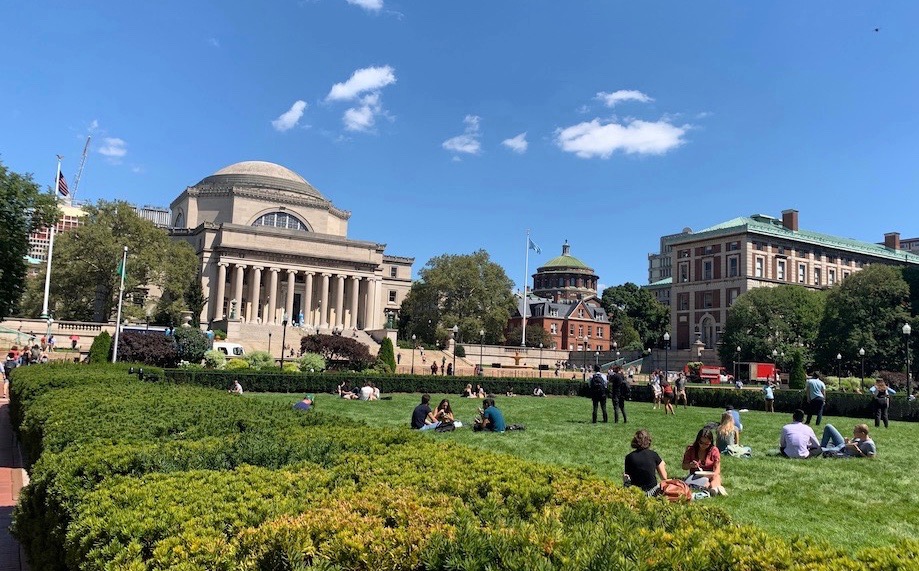Careers

Education Policy Career and Job Search Checklist
Searching for a job after graduation can seem like a daunting task. However, there are several things you can do that will make it much easier. Here are some suggestions for what you can do.
A. Self-Assessment: To begin, start thinking about the following:
- What are your areas of interest in education policy? For example, are you interested primarily in policy research, policy development, program/policy implementation, or policy advocacy?
- What type of organization would you like to work for? For example, would it be a school district office, state agency, other public agency, nonprofit, or for-profit? Would you want the organization to be big or small? What kind of mission or goals should it have?
- Key job features: What are the key features you would be looking for in your first job and in later jobs? What would you be looking for in terms of salary, hours, responsibilities, supervision and autonomy, co-workers, promotion possibilities, etc.?
- Location: In what areas of the country and in what cities or rural areas would you like to work?
- Skills and knowledge: What relevant knowledge and skills can you bring to your areas of interest?
- Advice: Have you talked to your advisor and other faculty members about your career and job interests?
B. Build Up Your Credentials:
1. Get the right academic experiences: Have you developed the knowledge and skills you will need? Are the following aligned with the field and job in which you would like to work?
- Your area of substantive specialization;
- Your research methods “toolkit;”
- Your culminating paper/project.
2. Get the right job experiences: Are the following aligned with the field and job in which you would like to work?
- Your job experience prior to your time at TC (often, teaching experience or other professional experience working with students, teachers, or others is very helpful);
- Your internships and volunteer experiences;
- Other job experiences during your time at TC.
3. Develop the right network: Make sure many people make your acquaintance, and help some of them get to know you well. Try to form ties to the following kinds of people:
- Professors, especially your advisor, who you can ask to serve as references;
- Fellow students and alums with shared interests;
- Employers in your intended field.
- Other professionals in your intended field: Meet them through internships, research positions, and presentations at conferences.
4. Develop an attractive professional portfolio to bring to an interview:
- Resume: Attend a resume writing workshop hosted by the TC Office of Career Education and Professional Development;
- Samples of professional writings: Good samples of your policy work that you can hand out to employers e.g. your culminating paper; reports written on internships; and policy and research memos that you wrote in courses with Profs. Huerta, Wohlstetter, Ready, and other faculty;
- Cover letter.
5. Keep informed about your field:
- Keep up with key education newspapers, journals, newsletters, and website e.g. Education Week, Chronicle of Higher Education, Inside Higher Education, Educational Evaluation and Policy Analysis, Education Policy;
- Check websites and get on listserves for professional associations and research and policy groups in your field;
- Follow EPSA News to keep up with what research your professors, fellow students, and alumni are involved with.
C. Search for Jobs.
- Do some advance scouting. See what employers are looking for. Follow job postings even before you’re ready to start looking for a position. Notice the qualifications of people with jobs like the one you would like to have. Get advice from the TC Office of Career Education and Professional Development on what listserves to subscribe to.
- Get leads from your advisor and other faculty, fellow students, and recent alums.
- Keep track of job openings announced in Program emails, the TC Office of Career Education and Professional Development, idealist.org, alumni listserves from your undergrad college, Education Week, Fritzwire (PublicPrivate Action), Chronicle of Higher Education, Inside Higher Education, etc.
- Attend panels with alums and employers, hosted by the TC Office of Career Education and Professional Development and Young Education Professionals.
- Conduct informational interviews with professionals in the field to find out how they see their field evolving, what employers are looking for, etc.
- Ask your professional contacts if they are aware of opportunities that might be a good fit for you (but don’t ask directly for a job; let that be their idea).
D. Prepare for Interviews.
- Learn interview skills: read the Education Policy Program career-advice handbook; attend workshops by the Office of Career Services. Learn how to anticipate questions, talk about yourself, and ask questions of your interviewer. Read the column “The Corner Office” published in the Sunday Business section of The New York Times.
- Carefully research jobs before interviewing for them:
- 1). Make sure you understand what the job announcement is driving at.
- 2). Talk to people who might know about the organization and the job.
- 3). Check the organization’s website to make sure you understand the organization’s goals, main activities and programs, and organizational structure.
- Learn salary negotiation skills: read the Education Policy Program career-advice handbook; attend workshops by the TC Office of Career Education and Professional Development.